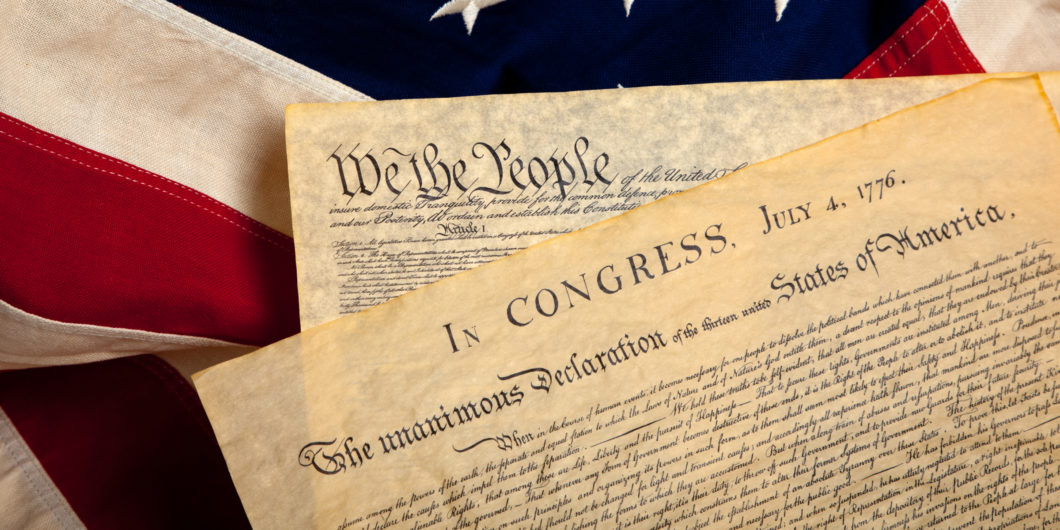The Declaration of Independence and the U.S. Constitution
What is the relationship between these documents, especially for interpreting the Constitution? There are several different possibilities.
1. Largely Unrelated. This is the conventional view in constitutional law. Under this view, one generally can ignore the Declaration when interpreting the Constitution. One justification is that the Declaration had a limited purpose – announcing to the world that the US was independent – and that was concluded by the end of the Revolutionary War.
2. Significant as a Document. Under this view, the principles announced in the Declaration are important guides to the meaning of the Constitution. The force of the Declaration comes from the fact that it is one of the foundational documents in US history. While not the standard view in either originalist or conventional constitutional law, it does have some adherents.
3. Significant as Evidence of Political Principles. Under this view, the Constitution should be interpreted in accordance with certain important political principles, such as natural law or traditional common law principles. The Declaration is evidence that natural law principles were widely accepted by the people in the latter part of the 18th. The reason for employing these principles, however, is not that they are in the Declaration, but that they were widely accepted.
I am not entirely sure whether I hold position 1 or 3 (or something in between), but I believe that position 2 is mistaken.
The argument for 2 is that the Declaration of Independence was an operative document that is one of the basic documents of U.S. history. Under the English system of constitutional law at the end of 18th century, significant documents would have been included in the constitution – documents such as the English Bill of Rights and the Magna Carta. But the American system departed from the English system by placing the entire constitution in a single document.
Another problem with this argument is that the Articles of Confederation was also a fundamental document of U.S. history, yet we do not interpret the Constitution in accordance with it (which is not to say that it is irrelevant to the interpretation of the Constitution).
Finally, the U.S. Constitution makes no reference to the Declaration, but such reference might have been expected if the Declaration were deemed to be a continuing part of constitutional law.
It is not really clear that people who want to interpret the Constitution in accordance with natural law need the Significant as a Document view. The natural law content would be much the same under the Significant as Evidence view, and that view could rely upon far more evidence and support. In the future, I hope to post about this latter view.


